Uncategorized
-
National Ambassador Gene Luen Yang on Superheroes and the Outsider Experience
As the child of Chinese immigrants, Yang identified with Superman and other costumed heroes navigating multiple cultures. Yang has reinvented the genre for today’s diverse audience through his “New Super-Man” series, …
-
CBC Diversity Hosts Teen Outreach Panels in Boston
Over 40 teens from Hyde Square Task Force attended the event, which brought together children’s book creators and industry experts. Stay tuned for upcoming panels in Boston and New York City. (Publishers Weekly)
-
National Ambassador Gene Luen Yang’s Reading Without Walls Podcast: Episode 8 with Patrick Ness
Through his platform, “Reading Without Walls,” Yang hopes to inspire readers of all ages to pick up a book that is unlike their usual reading. In episode eight of his podcast, …
-
CBC Hosts “Behind the Panels: Advice and Insight to Children’s Graphic Novel Sales”
The panel of experts included Gina Gagliano, Publicist, First Second Macmillan; Terence Irvins, Assistant Manager; Comics and Graphic Novels Buyer, Kinokuniya Bookstores of America Co., Ltd.; Charles Kochman, Editorial Director, Abrams; and Tony …
-
Author Claudette Hegel Donates Complete Newbery and Caldecott Collection to the Children’s Book Council
New York, NY – Monday, November 7, 2016 – Minnesota-based author and literacy volunteer Claudette Hegel has donated her complete collection of the John Newbery and Randolph Caldecott Award winners to the …
-
The Big Questions
Contributed by SF Said
I write children’s books because I believe they’re the books that change people’s lives.
My favorite book as a child was Watership Down by Richard Adams. I re-read it as an adult, trying to understand why I’d loved it so much. More than a thrilling adventure story about rabbits, I saw it was a story about the big questions of human life: Who are we? Where do we come from? Where do we belong? How should we live?
I think that’s why it meant so much to me. My family’s roots are in the Middle East. My ancestors were Iraqi, Egyptian, Kurdish, and Circassian Muslims. I grew up in Britain in the 1970s, where such origins were unusual. Negotiations around identity, difference and belonging were daily facts of my life. Even my name was an issue. Sabah Falah Said is an ordinary Arabic name, but unpronounceable in English! Whenever it came up, people would question it to such an extent that I ended up using initials.
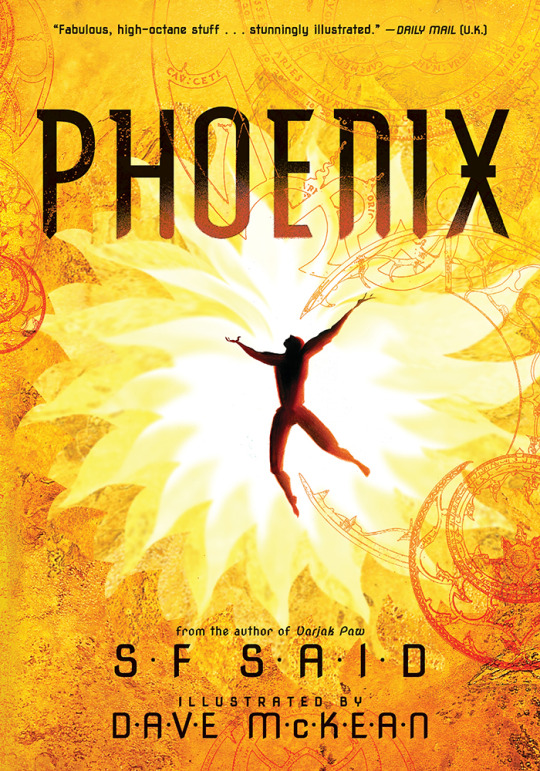
So when I read Watership Down and saw that the hero of the rabbits’ myths was called El-Ahrairah, it struck a very deep chord. The greatest rabbit who ever lived had an Arabic-sounding name? That gave me what Junot Diaz has described as a feeling of seeing myself reflected; realizing my background could be something more than a burden.
A children’s book had given me a way to think about myself and my place in the world. So now I put everything I have into writing children’s books. I put years and years of work into making each book the best it can possibly be, making them as thrilling as I can, but also filling them with those big questions; Who are we? Where do we come from? Where do we belong? How should we live?
In my first book, Varjak Paw, these questions are explored through cats and dogs. Varjak is a cat who makes friends with a dog and learns that a dog can be the best friend a cat could ever have.
My new book, Phoenix, is set in a galaxy where humans and aliens are at war. The humans have even built a great spacewall to keep the aliens out. The main characters are a human boy on the run and an alien girl he meets. She’s a refugee from the war who has grown up in camps, hated and feared by humans. But they discover that they have more in common than they thought—and together, they might even save the galaxy.
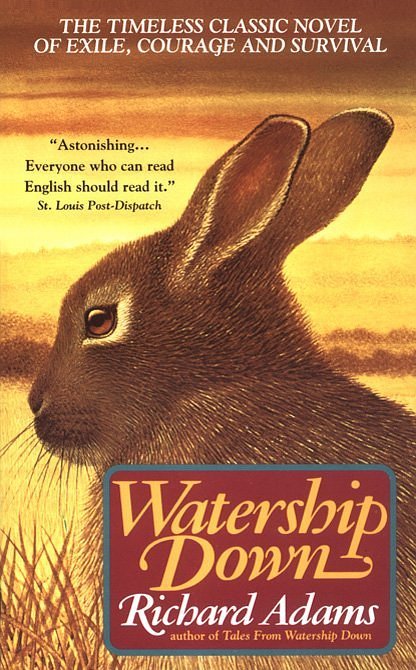
I didn’t write Phoenix about a specific situation in the real world. I wanted to explore those ideas of identity, difference, and belonging that I’ve been living with all my life, and that I think lie at the roots of so many situations, all over the world.
Things have changed so much since my childhood. People are on the move as never before; hundreds of millions of us now live outside our countries of origin. One response to that is to build walls. But another is to build bridges of understanding— as my characters in Phoenix must do to survive.
Young people everywhere are hungry for stories to help them navigate this world. My highest hope is that a book like Phoenix might help them think about the world, their experiences of it, and other people’s experiences as Watership Down helped me. I love the idea that children’s books can be bridges connecting people, showing them that however different someone else might be, the things which unite us are greater than those which divide us. And that difference can be a source of richness: something to be celebrated, not feared.

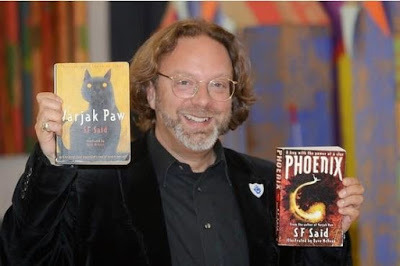
SF Said is the Nestlé Smarties Book Prize–winning author of Varjak Paw. He was born in Lebanon in 1967, but has lived in London since he was two years old.
-
Sponsor a Literary Landmark for Children’s Book Week 2017
BRYN MAWR, PA — United for Libraries is partnering with the ALA-Children’s Book Council Joint Committee to designate seven Literary Landmarks during Children’s Book Week (May 1-7, 2017). United for …
-
We Need More
Contributed by Ashley Herring Blake, Author
I recently started working in an indie bookstore. The great thing about this job, aside from being surrounded by beautiful books all day long, is that it gets me out of my writer brain and back in touch with my reader brain. I work mostly in the kid’s section, and every day customers come in with very specific requests. I’ve noticed a lot of the teens who frequent the young adult section don’t ask for recommendations all that much, but the middle grade and advancing readers section is a cornucopia of parents looking for certain books or certain topics for their kids.
The other day, I had a mom ask me for a book with a trans character for a first grader.
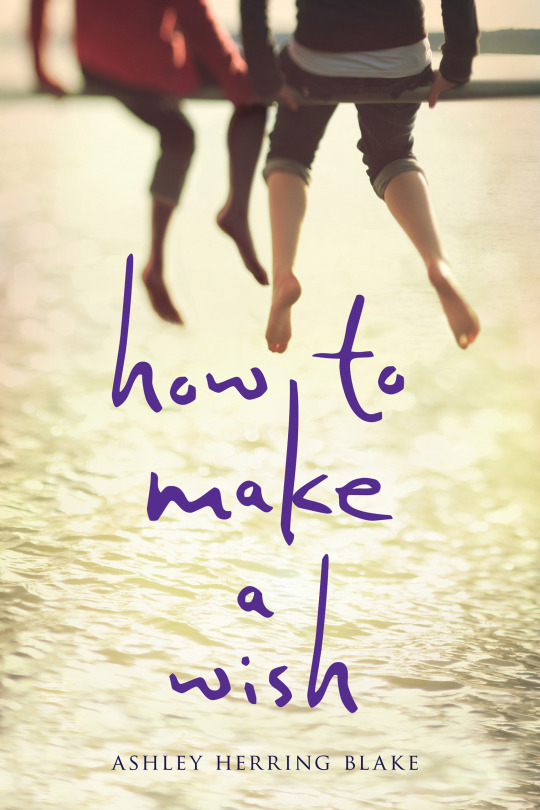
And let me tell you, I scratched my head for a few seconds. We talked about some of the picture books we had—and we do have a couple, though none of them struck the right chord with this mother—and finally, I moved into our advancing readers section.
I picked up Alex Gino’s George.
I explained that she’d probably have to read this to her first grader, but that George was a beautiful book about a trans girl in the third grade named Melissa who, more than anything in the world, wanted to play Charlotte in her school’s production of Charlotte’s Web. I told her about how Melissa wasn’t out to her family and they called her “George.” We talked about how Melissa gets made fun of a little bit, but we also talked about how Melissa makes a friend who accepts Melissa for who she is and how, eventually, so does Melissa’s family. The mother beamed after we talked it through and she left the store with the book in her hands.
Now, I don’t know that mother’s story. I don’t know if her first grader is trans or has a trans friend or a trans cousin or what have you. What I do know is that by writing George, Alex Gino was able to connect a mom and her kid in a way that no other book could. The book was able to provide a mirror for someone, a really, really young someone, who might be feeling lost and alone and scared. There are many reasons to feel lost and alone and scared when you’re in elementary school: divorced parents, a death in the family, difficult or changing friendships. All of these are valid and the books that deal with these issues are important too.
But here’s the difference: There are a lot of books about divorce, death, and friendships out there.And in the end, I only had one book to put in that mother’s hands. After talking with this mother, the children’s book manager at my store found some more books about trans kids for younger readers and ordered them, and that is excellent, but we need more options. We need more trans picture books. We need more chapter books where the main character has two moms or two dads. We need more middle grade stories where the main character is figuring out they’re not quite as boy crazy as her best friend is. We need more young adult novels with bisexual main characters, and trans main characters, and gay main characters, and asexual main characters. We need more intersectionality in LGBTQIAP+ literature, where our queer characters—for all ages—are also people of color.

Those books are out there and that is fabulous. But we need more.
So, how do we get more?
Well, we write them. We write them with sensitivity and love and respect. If those stories are our own, we tell them. If they are not, we boost those to whom those stories belong. We do the work and get our work checked and rechecked so that it comforts instead of harms. As readers, we buy these books. We request them at our libraries. We tell our friends about them, we tweet about them, we tell anyone who’ll listen.
I believe the world is changing for the better. It’s not becoming more diverse. It has always been this beautifully varied. But we are illuminating those stories more and more. But that will only continue if we keep on questioning, keep on boosting, keep on writing and reading and talking about those mirrors for the kids who need it.
Let’s keep it going.

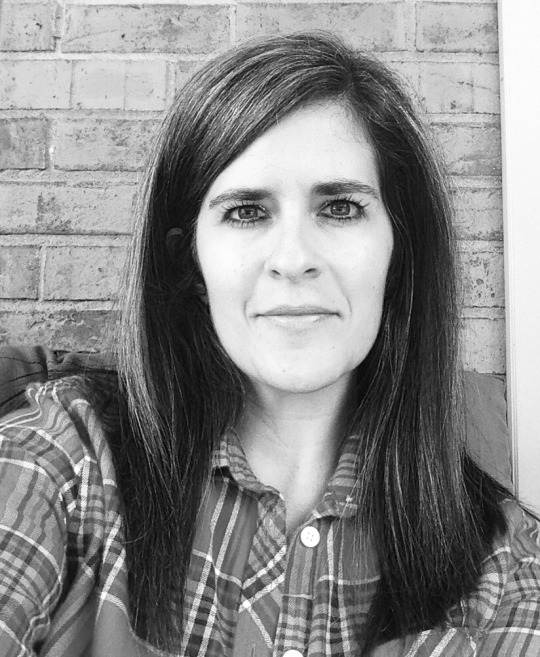
Ashley Herring Blake used to write songs and now she writes books. She reads them a lot too and has been known to stare wistfully at her bookshelves. She lives in Nashville, TN with her husband and two sons. www.ashleyherringblake.com
-
Diversity in the News: October 2016
The newsletter is a valuable resource for librarians, teachers, booksellers, parents and caregivers, publishing professionals, and children’s literature lovers. Find thought-provoking articles, diverse new releases, and more in this month’s issue and sign …
-
CBC TO OFFER SCHOLARSHIPS TO TWO ENTRY-LEVEL PUBLISHING STAFF FOR ABA INSTITUTES
Tuesday, October 25, 2016 — New York, NY — The Children’s Book Council announces that applications are now open for any entry-level employees at CBC member publishers to apply for one …
-
National Ambassador Gene Luen Yang’s Reading Without Walls Podcast: Episode 7 with Lois Lowry
Through his platform, “Reading Without Walls,” Yang hopes to inspire readers of all ages to pick up a book outside their comfort zone. In episode seven of his podcast, Yang chats with Newbery …
-
CBC Forum: Making a Bestseller
Panelists Louise Lareau, managing librarian at the Children’s Center at 42nd Street; Emily Romero, senior v-p of marketing, Penguin Young Readers; and Maria Russo, children’s books editor of the New York …
-
Industry Q &A with Author Jill Diamond
Tell us about your most recent book and how you came to write/illustrate it.
Lou Lou and Pea and the Mural Mystery is about two best friends, Lou Lou Bombay and Peacock Pearl. Lou Lou loves horticulture and Pea loves art. Every Friday afternoon, they get together in Lou Lou’s backyard garden for their PSPP (Post-School-Pre-Parents) tea party. They chat about school, discuss Pea’s latest fashions, and plot the weekend’s activities.
But all plans go out the window when a series of small crimes crop up around El Corazón, their quirky neighborhood, right before the Día de los Muertos procession. First, Pea’s cousin’s quinceañera dress is tragically ruined. Then Lou Lou’s beloved camellia bush, Pinky, suffers a serious blow. And that’s just the beginning! When clues start to appear in El Corazón’s outdoor murals, the best friends join forces, using Lou Lou’s floral expertise and Pea’s artistic genius to solve the mysteries.
This is my first middle grade novel, and I began working on it when I was caring for my mom during an illness. My mom was a school librarian who cultivated my love of reading, so I felt that writing a children’s book was a fitting way to spend my time. I wanted to tell a story inspired by my neighborhood, San Francisco’s Mission District, and its amazing community art, food, traditions, and local culture.
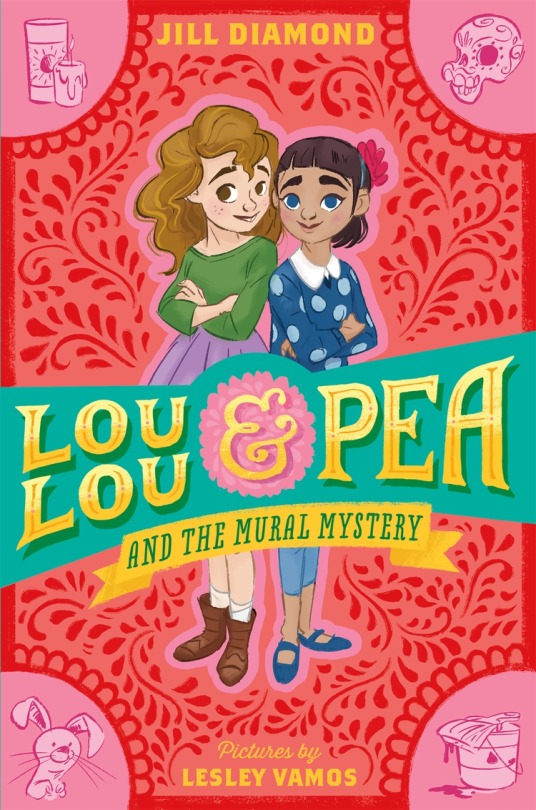
Do you think of yourself as a diverse author/illustrator?
I think of myself as an author from a diverse community. I am fortunate to live in a place where I am surrounded by a rainbow of different people who are my friends and neighbors. Being a part of this diverse community enriches my life immeasurably.
Part of that enrichment has been the improvement of my Spanish. But I’m not fluent, so I felt it was important to ask for help when I included Spanish dialogue or words in the book. My editor commissioned a native Spanish speaker to read the manuscript and provide us with feedback. So you could say I combined lived experience with research!
Who is your favorite character of all time in children’s or young adult literature?
It’s a toss-up! Alanna of Trebond from The Song of the Lioness series by Tamora Pierce is definitely a favorite. I love that she is a fierce and fearless girl who refuses to let naysayers and social norms stand in the way of her dreams.
Naima from Rickshaw Girl by Mitali Perkins is another favorite. Like Alanna, Naima is brave and strong, and even dresses like a boy to pursue goals that are not usually achievable by women in her village. Naima’s commitment to her family and her determination to make things right also really speaks to me.
Hypothetically speaking, let’s say you are forced to sell all of the books you own except for one. Which do you keep?
Sell all of my books? I can’t imagine! But if I had to, I’d keep The Phantom Tollbooth by Norton Juster. It’s the perfect combination of smart, entertaining, and charming. And it’s truly a book that can be read over and over again.
What does diversity mean to you as you think about your own books?
Diversity, at least for Lou Lou And Pea, means a representation of the culture of my neighborhood as I experience it. My book incorporates Spanish language and Latinx characters, as well as related traditions inspired by ones that exist in the Mission. I think it’s important to note that my book is only based on a part of my city’s overall diverse community.
I also felt strongly about writing a story that was fun and celebratory with regard to its diversity. The Mission is very proud of its heritage, and I hoped to infuse this series with that joy. While there is a need for stories that explore prejudice and systemic injustices, I didn’t feel I could write that kind of book. To me, Pea and Lou Lou’s differing backgrounds should not be a surprise, but a matter of course. There are a growing number of communities in this country that are overwhelmingly diverse. And that’s very exciting.
What is your thought process in including or excluding characters of diverse backgrounds?
I never considered not including diverse characters in my book. A story inspired by the Mission that failed to reflect its diversity would not capture its vibrant reality. Many of the things I love about the neighborhood stem from its diversity.
I also wanted both girls to receive equal stage-time in the series. Too often, characters of color get sidelined in a story. I believe Lou Lou and Pea’s friendship is fun, supportive, and equitable. And while each book in the series alternates in featuring one of the two girls more prominently, they always work together to solve the mystery or problem at hand.
If you are an author, write an example of a paragraph that is tone deaf when it comes to cultural diversity, then write the correct version. Explain the differences in the third paragraph.
The crowning event of the holiday was a fun parade. At twilight, the streets around Lucky Alley would be packed with people holding boxes filled with trinkets and photos. Some people brought pretty flowers and others wore Halloween face paint and costumes.
The crowning event of Día de los Muertos was the procession. At twilight, the streets around Lucky Alley would be packed with people and their elaborate altars displaying candles, mementos, favorite foods, and photos of departed loved ones. Flowers were abundant, particularly marigolds, which were used to guide spirits to their altars. Many people even painted their faces to look like skeletons for the procession.
Both of these paragraphs are descriptions of the Día de los Muertos procession in my neighborhood. The first describes how the procession might look to an outside observer, but it is tone deaf because it fails to include any cultural signifiers as they relate to the holiday. The second – the actual description from Lou Lou and Pea - explains more about the traditions, as I understand them as a part of my community. To a certain extent it is relative: A Día de los Muertos procession in Mexico would surely be described differently and, not having experienced this event, I couldn’t pretend that my paragraph paints an accurate picture of another city’s traditions, or even another person’s experience of the procession in the Mission. That’s why attention to specifics and context is crucial in writing, but especially when writing beyond your own background.

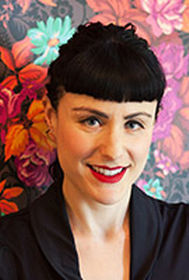
Jill Diamond has loved children’s literature for as long as she can remember, thanks to her school librarian mother and the long, cold winters in Maine. She now lives in San Francisco with her husband and her son. Visit her at www.jilldiamondbooks.com
-
Author and Illustrator Christopher Myers at the CBC’s Annual Meeting
Through his work at the International Youth Library in Munich, Myers spoke with child refugees and helped them find a voice to share their harrowing journeys. He believes that publishers have the power …
-
#DVpit
Contributed by Beth Phelan, Agent The Bent Agency
#DVpit is a Twitter event created to showcase pitches about and especially by marginalized voices. It will be held on October 5 and 6th. Visit dvpit.com to learn more.
I have always been a reader. Many times, I would read the last page of a book only to immediately flip back to the beginning and start again. What brought me back to books again and again was the escape, but it still felt like I was escaping into someone else’s story, someone so far removed from my own reality. It never felt like it could be mine, or that my own stories and experiences could be worth sharing.
That needs to change. And it’s starting to, but there’s still so much more to do. Thanks to Dr. Rudine Sims Bishop, we have this important concept of mirrors, windows, and sliding glass doors. And I know there are younger readers out there who were and are, like me, still searching and still deserving of many different reflections and many different windows.
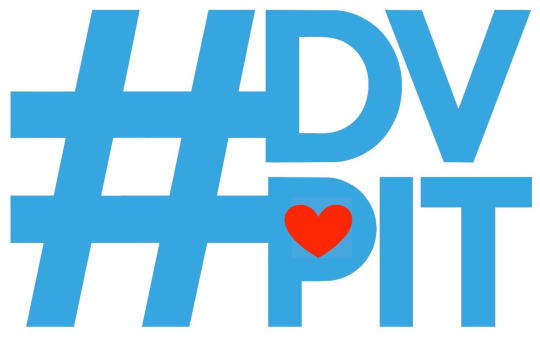
#DVpit is a Twitter pitching event created to aid in this search, to showcase pitches about but especially by marginalized writers, whether writing their own experience or outside of it. This includes (but isn’t limited to) Native peoples and people of color, disabled persons, people identifying as LGBTQIA+, and anyone with an underrepresented background or identity. #DVpit is focused on the writers for a couple of reasons. First, because focusing on only the stories and ignoring the creators contradicts our goal. We need to follow through by diversifying our rosters as well as our characters. Second, I want more young creators to feel like they could have a place in this industry by sending this message to the next generation: You can do this. We want you. When we make this a more inclusive space, a space that respects and accepts instead of exploits, we’re making it safe for the next wave of brilliant minds. In this industry, we know that words have power, and we must look at the people who wield that power.
#DVpit is definitely a group effort, so I asked some of the participating agents and editors to chime in on what their hopes are in participating in #DVpit and why they are joining this effort:

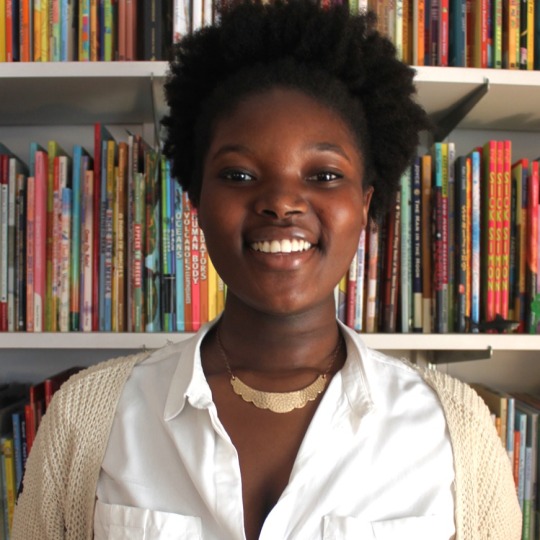
“The idea of mirrors in publishing often stops at the representation of characters in a book. And as someone who’s spent a lifetime reading books that were neither for her nor about her, that representation means a lot to me. But authors mean a lot too. People are more likely to support a child’s dream of one day becoming president than to ever support their dreams of becoming a writer—especially if they’re from a marginalized background. #DVpit is raising the voices of marginalized writers and giving them a space to share their stories. As an editor, I’m always thrilled to see a project from a marginalized writer. For young readers in particular, these stories, these writers, and these mirrors matter.”
—Mekisha Telfer, Editorial Assistant, Simon & Schuster BFYR & Salaam Reads
“I’m involved in #DVPit because all children need diverse books! For readers, books can be two things: a window or an opening to the world, and a mirror, a place readers can see themselves. For a child or teenager—a person actively involved in learning who they are, and understanding the world—those windows and mirrors are incredibly valuable and important, building empathy and a strong sense of self. Books that reflect and embrace diversity give us the best, most true way of seeing the world and our place in it. I’m interested in all kinds of diversity and diverse stories, and I’m re-opening to queries as of Oct 5th!“
—Susan Hawk, Literary Agent, the Bent Agency
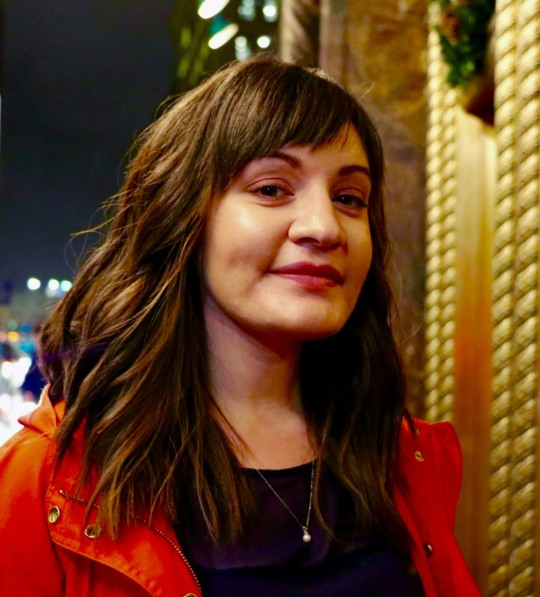
“I think the very least that YA literature can do (but also the very best) is to show teens that they aren’t alone. It can’t make promises that life will be perfect, rewrite hateful laws, or remake society into an accepting place overnight. But for marginalized teens to see themselves reflected in diverse stories—and in diverse authors—it shows them that they aren’t alone or wrong or unworthy of a narrative; That they deserve a place in history, and romance, and sci-fi, and in the world. I so wish that I’d seen more of myself in books growing up, and as a literary agent, I’m in the position to do my own small part to help to correct that.”
—Rebecca Podos, Literary Agent, Rees Literary
“I’m involved with #DVpit because I know that we can do better—and we need to do better. As an editor, saying I want to see more diverse voices in my inbox can only accomplish so much. That relies on authors from underrepresented communities and backgrounds, authors who didn’t grow up seeing themselves in books the way I and many of my colleagues were lucky enough to as young readers, to come find us—to navigate their way through traditional avenues that haven’t always been open to them, toward a table that hasn’t always had a place for them. I’m glad to see us, as an industry, trying to add more chairs to that table; but we can’t just wait with our fingers crossed, hoping that underrepresented voices will find their way to our inboxes. We can do more. And we should.”
—Stephanie Stein, Associate Editor, HarperCollins Children’s Books
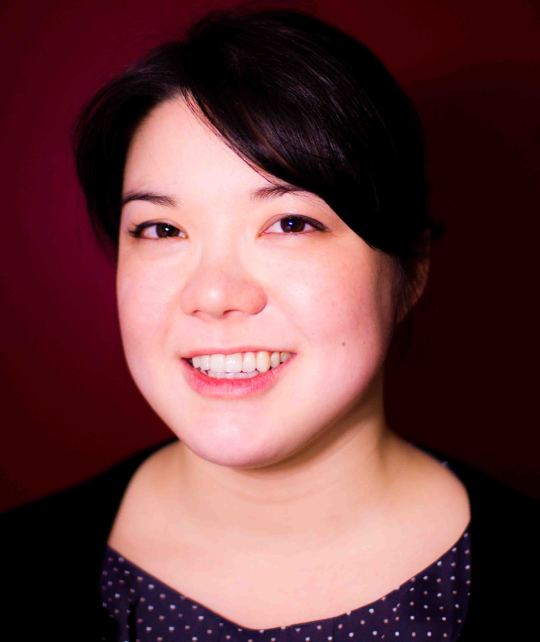
“The misconception that diversity is about lowering the bar and pandering to special demographics insults readers of all kinds. Non-white/straight/cis/able readers have spent generations reading, loving, and empathizing with characters who are different from them, and there’s no reason to assume that “mainstream” readers are incapable of doing the same. As a mixed-race POC who hasn’t always identified that way because all the mirrors I saw only reflected my white heritage, I know that the books we read change the people we are, letting us become someone else in the moment while expanding our own identities in the world. I have confidence that readers from all backgrounds love great stories and deserve exposure to a broader spectrum.”
—Kirsten Carleton, Literary Agent, Prospect Agency
“It’s been documented that publishing has been under-serving segments of the book-buying community. Some people don’t understand the need for change because they already see themselves in a lot of published books—but not everyone is as lucky. As a white lady, I’d say that I think it’s very important for us ‘non-diverse’ types to read literature about people who live different lives than ours. I went to two schools—one with a diverse mix of students and one without. I find, as an adult, that being exposed to other cultures and ways of thinking as a child prepared me for college, ‘the real world’, and working better than the second school did. If you want your child to succeed at life, you should be an advocate for diversity in children’s literature and you should encourage your child to read books outside his or her experience.”
—Emily Keyes, Literary Agent, Fuse Literary

“I read a lot of contemporary realistic YA growing up, and credit these books for making me such an avid reader, such a big fan of stories. But while I loved (and still love!) those books, as a young reader I always felt like I had to reach to see myself in them, to readjust my reading experience to glean universal truths. More significantly, a small part of me suspected that books just weren’t meant for people like me because I never saw myself nor my experience reflected in them. I’m supporting #DVPit because I want to find voices—specifically in the contemporary YA space, for me—that reflect the way the world is: full of people of all different shapes, sizes, colors, circumstances. I want today’s generation of YA readers to have their experiences validated, to feel celebrated, to feel seen. To feel that sense of belonging so many of us were and still are denied.”
—Jennifer Ung, Associate Editor, Simon Pulse, Simon & Schuster Children’s Publishing
“I’m constantly looking for #ownvoices authors. What better way to get access to a large variety of options than by participating in something as wonderful and needed as #DVPit? As a POC in publishing it is immensely important to me to feel that I am making sure that I strive for realistic representation in the books I acquire.”
—Quressa Robinson, Assistant Editor, St. Martin’s Press
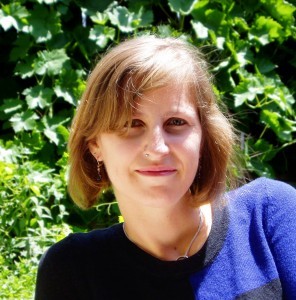
“I firmly believe that diverse books create real social change: seeing characters who make you feel recognized can offer a desperately needed sense of belonging and acceptance, while seeing characters who are different from you can build empathy and understanding. Plus, there are just so many talented, diverse voices out there that deserve a chance to be heard!”
—Patricia Nelson, Literary Agent, Marsal Lyon Literary Agency
“I’m committed through my work at Riptide Publishing to #DVpit and to diversity and inclusiveness in all levels of publishing, because representation literally saves lives. Representation educates and representation stops people from feeling they’re alone. Everyone deserves their happy ending and everyone deserves to be the hero of their own story.”
—Sarah Lyons, Editorial Director, Riptide Publishing
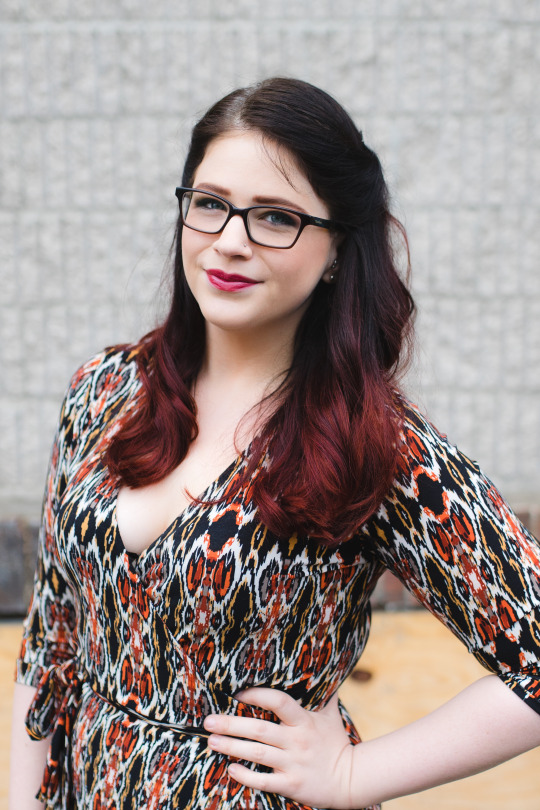
“I’m excited about participating in #DVpit because reading is one of the most empathetic (and human) things you can do. Having a diverse set of voices in publishing honors that reality and gives readers the opportunity to practice it.”
—Laura Zats, Literary Agent, Red Sofa Literary
“I’ve always wanted to see more diversity in stories, both as an agent and as a reader. I remember hearing about black Hermione when Harry Potter and the Cursed Child first debuted and how thrilled I was—and yet, it was a bittersweet moment because that was when I realized that, without any cultural markers, I always assumed characters in books were white, despite my own background (who would expect Carrie Pestritto to be an adopted Korean?). But now instead of just being frustrated by the slow change, what I feel most is eagerness to introduce readers to new worlds and viewpoints so that everyone can see the similarities between themselves and the people on the page.”
—Carrie Pestritto, Literary Agent, Prospect Agency
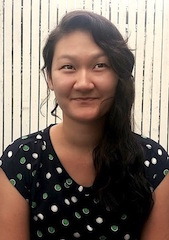
To the marginalized writers reading this, whether you are writing in the children’s/teen space or for the adult market, I want you to know that you are important. Your words and your voices matter. Even if you aren’t ready to participate, I hope you will stop by on October 5 and/or 6 to reach out to the community. We’re here. And we want your voice.
—Beth Phelan, #DVpit Creator & Literary Agent, the Bent Agency
For more information, please visit dvpit.com
-
Celebrating 45 Years of ‘The Monster at the End of This Book’!
To commemorate the occasion, National Ambassador for Young People’s Literature and beloved comic book artist Gene Luen Yang invites readers to submit fan art inspired by a favorite scene from …
-
Diversity in the News: September 2016
The newsletter is a valuable resource for librarians, teachers, booksellers, parents and caregivers, publishing professionals, and children’s literature lovers. Find thought-provoking articles, diverse new releases, and more in this month’s issue and sign …
-
How I Got into Publishing: Luana Horry, Editorial Assistant at HarperCollins Children’s Books
“Child, what are you going to do with that degree?”
I was full of pride on the day I graduated college—until Grandma Lynell asked me that simple question. You would think that someone with a nearly perfect GPA and two graduate school acceptance letters would know exactly how to respond. My goal was to become a professor of African-American literature and black feminist thought. But I hung my head low because I felt that I had not only tricked myself into thinking I was completely sure of my life’s goal, but that I had also duped those women and men who sacrificed so much for me to be able to walk across the stage that day.
I laughed it off and went about celebrating, but Granny’s question hit me—hard.
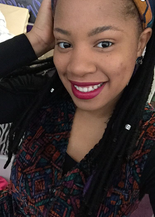
I love the world of academia and the learning process; however, I didn’t have the spiritual energy or the financial freedom to pursue a doctorate. So during that post-graduation summer, it was the Beyoncé music that I listened to, the Jamaican food that I ate, and the books that I read that kept my spirits up.
In the fall though, I got serious about my life and started applying for any and every job I could. I turned the music down and put the food down—but could never put the books down. In Between the World and Me, Ta-Nehisi Coates speaks about his reawakening during and after college. It reminded me of the one thing in life that has never failed me: my passion for reading great stories and telling stories of my own. Working with books became a mission for me.
I soon landed an interview with Editor Benjamin Woodward at a small nonprofit publisher, The New Press. He asked me what I was reading and I immediately launched into critiques of and praise for W.E.B. DuBois’ Black Reconstruction. Like a true book nerd. He hired me as an intern the next week.
The New Press will forever have a special place in my heart because it introduced me to a reality that I never knew existed—one in which you could build your career around reading, cultivating, and loving literature. I was there for just a few months when I realized that the books that stayed with me the most were actually children’s books.
When I was a kid, books about little black girls with afro puffs and little brown boys with wide brown eyes were not easy to find. I vaguely remember some, but they were always presented to us as separate and different and were read only during Black History Month. Why, I wondered, were stories about me worthy of only momentary and fleeting celebration? Of course, now I think differences in identity are wonderful, but when I was young I felt ostracized, so much so that I shied away from books about African Americans.
It felt important to me to build a career in an industry where I could make a difference in the lives of children like my niece, who deserve better than a peripheral reading and cultural experience. She deserves abundant, honest stories about black and brown people all year long. So I found another internship, this time at Simon and Schuster Books for Young Readers, before being hired as editorial assistant at HarperCollins.
My happiness was boundless when my manager hired me at Harper—and it remains that way. I have the opportunity to help diversify the workplace, but also to diversify the list using both of my degrees (I hope Granny is proud). My new goal is to work hard and to one day acquire books that include a variety of cultural values, sexual and gender orientations, racial identities, and socioeconomic/political perspectives. It truly is an exciting time to be in publishing!

Luana Horry—I graduated from SUNY New Paltz in 2015 with a double bachelors in English and Black Studies, and am currently pursuing a master’s degree in Africana Studies, with a focus in literature. I am an editorial assistant at HarperCollins Children’s Books. I live in Queens, New York and my favorite thing to do besides reading is trying new recipes.
-
National Ambassador Gene Luen Yang’s Reading Without Walls Podcast: Episode 6 with Thien Pham
Through his platform, “Reading Without Walls,” Yang hopes to inspire readers of all ages to pick up a book outside their comfort zone. In episode six of his podcast, Yang …
-
National Ambassador Gene Luen Yang Awarded a MacArthur Fellowship
Yang, who is currently on tour for the second book in his Secret Coders series, hopes to put the grant towards his work as a comics creator and as National …





















